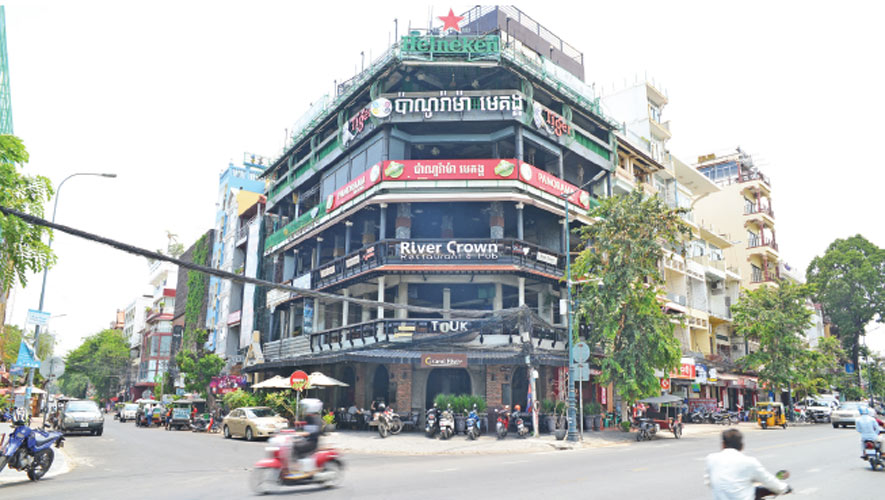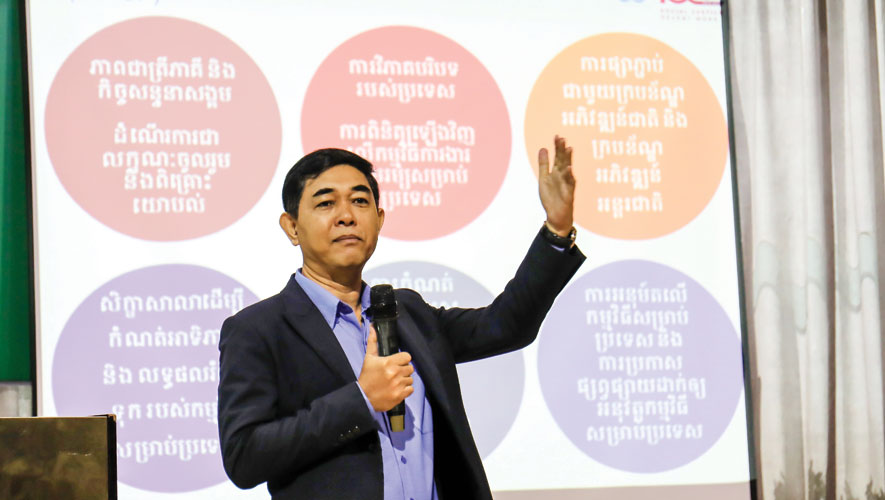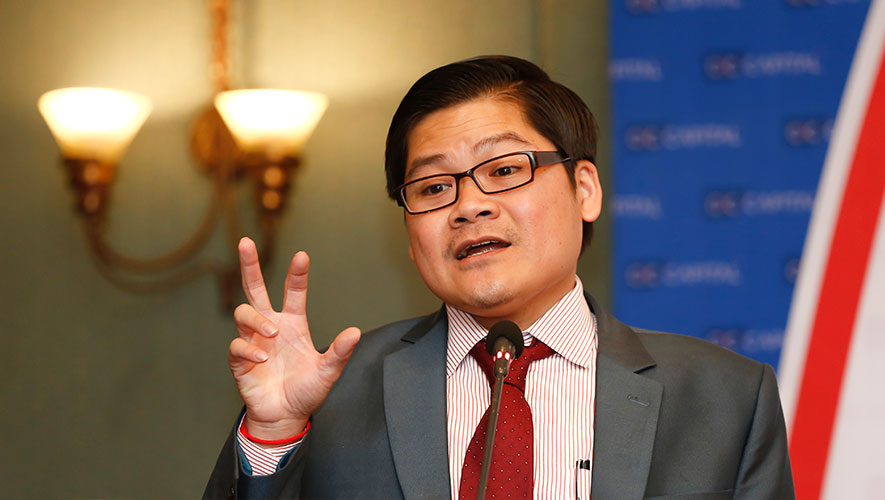Some restaurants are slowly reviving as the COVID-19 situation appears to be improving but they are far less successful than before and many have gone bust.
For the latest Cambodian Business news, visit Khmer Times Business
There have been no positive case for the 19 consecutive days and zero new infections reported. A representative at Vitking House’s Wat Mohamontrey Branch in Phnom Penh told Khmer Times this weekthatmorewalk-incustomers have come to eat at the outlet recently.
Vitking House, a vegetarian food restaurant with two branches in Phnom Penh, said it is still sticking to the Ministry of Health instructions, with good hygiene practised and all customers required to have their body temperature screened before entering.
“Despite the situation getting better, the number of customers who come to eat here remains small,” the representative said. “We used to have crowds of customers waiting in line waiting for our service, but now it is a different matter. There is a slight increase in walk-customers, but it is still limited,” the source added.
Heng Sengly, managing director of the Park Cafe chain, said he’d seen people becoming more relaxed along the road and that does not mean the number of people eating out is rising much.The popular restaurant with 13 branches in the capital even used to have customers have their breakfast there but now there are few.
Sengly added that people are not yet feeling confident to eat food outside not just because they feel insecure, but because the pandemic has affected where they work with some taking salary cuts. “That said, they are of course saving money,” he noted.
“I think from now on people will feel confident eating out,” he said.
Hak Lina, president of the Cambodian Restaurant Association, told Khmer Times there are several concerns in the industry: security and the hygiene of customers and staff to fight the pandemic and the economic impact of the social distancing, which affect different restaurants differently, according to their category.
“I do not want to develop the first point because it has been covered widely already and everyone is following instructions and this is a positive consequence of the pandemic because more than ever awareness about hygiene has been created across all department of restaurants from kitchen to service, cleaners, admin, hosts etc,” she said.
Lina said: “We can say that among restaurants in Phnom Penh and Siem Reap, 70 percent are closed now.”
The ones that remain open are barely selling 10 to 29 per cent of their normal revenue before COVID-19. These restaurants are the ones that have the heaviest investment and overhead expenses.
Moreover, she said they are in 90 percent of the cases all renting space to other businesses. Because they are running out of cash (sales down 80 to 90 per cent) they are not able to pay salaries and rent.
Because they can’t pay the rent they are in danger of losing all their investment if the landlord does not help and follow strictly the lease contract.
“It is easy to see where this is going. After the business closes, staff lose their jobs and once the economy recovers we will have only closed doors to offer to future clients,” she said.
Fast food and coffee shops are another category, which she said had seen a decrease in sales between 30 and 50 percent. “Some partially compensate their losses with increases in home deliveries or takeaways but still they have to give paid leave to their staff. The paid leave for these staff members varies between 30 to 50 percent,” she added.
“So our industry is severely affected by the crisis.
Cash flow is the main issue here. Without it, lots of business will die. To evaluate the overall impact is beyond our association’s reach.
Lately the leaders of our industry met and shared their points of view and they hope and forecast that we will go back to a sustainable level of business in the first quarter of 2021 and back to normal activity by the end of 2021,” she pointed out.
There is tax relief until the end of May, which Lina said, is one thing that helps the restaurants that are still open.
“But financial support to staff who have seen their contracts suspended has been announced but not implemented yet.
Access to loans to finance a lack of cash flow is necessary and together with other associations in tourism and hospitality under the umbrella of theCTF [Cambodia Tourism Federation], we requested that the government comes with a scheme to help our business to access working capital loans.
“It is now under discussion,” she said, adding that as the crisis is spreading to other sectors the association has joined forces with many other national and international business associations to engage with the government to find solutions to salvage the devastated Cambodian and global economy.




